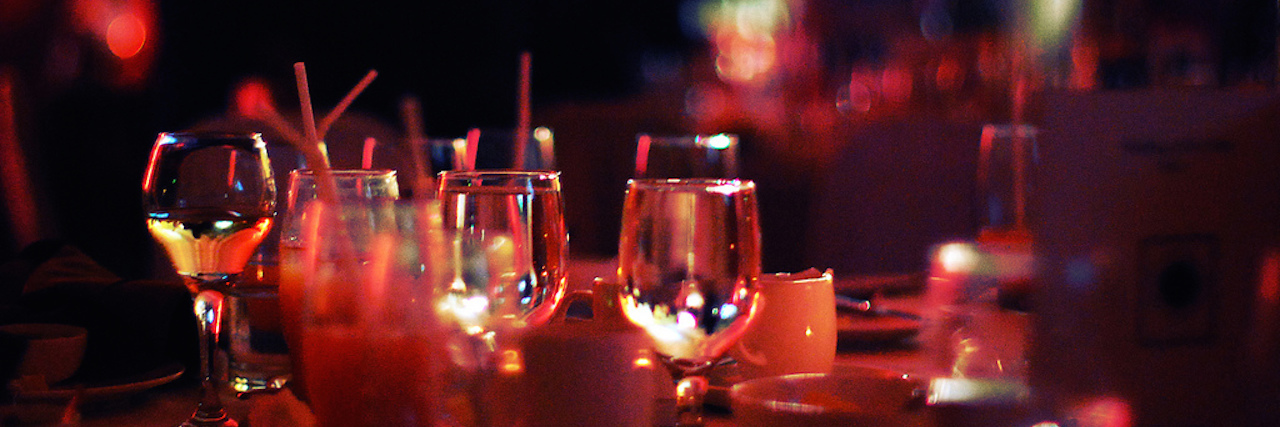“Why do you still like to party if you don’t drink?” For a moment I stared at the boy, incredulous, as his words sunk in. Until meeting him, no one had tried to prove I wrong for still having fun in spite of my Crohn’s disease diagnosis. His condescending tone when he said “party” made it hard to not roll my eyes. I didn’t consider it partying; I considered it hanging out with my friends.
“For me going out and drinking aren’t mutually exclusive so if I still want to go out and dance with my friends I’m going to do that,” I said.
“But why partying? Why not find other hobbies that don’t involve drinking?” He pressed. In his head, because I had a chronic illness, I did not belong in the bar where he had met me. I belonged at home.
“Why do I have to give it up entirely when drinking is only a small part of it? I already had to give up a lot of other things so I’m going to keep doing what I can do if it means I can feel normal,” I countered.
After this he relented, but the conversation left a bad taste in my mouth. It was the summer before my senior year of college. I was old enough to be in the bar and had been socializing like everybody else; he hadn’t even realized I wasn’t drinking until I told him. So what was his problem?
For almost two years, I had continued going out to parties and bars with my friends despite the fact I could no longer digest alcohol. Nobody else had ever been opposed to my decision. If somebody I didn’t know asked to get me a drink, I declined it. If they asked why I wasn’t drinking, I explained that I had Crohn’s disease and couldn’t drink. There was no point in lying, and I am a firm believer that people can only understand if you are honest with them. People who knew what Crohn’s disease was would then mention the person they knew who had it and that they usually didn’t drink either. My friends were great, and would sometimes jump in and explain so I wouldn’t have to rehash the same thing over and over again.
When my symptoms were flaring, I missed out on a lot. As soon as I was feeling better and it wasn’t necessary for me to be at home all the time, I picked back up all the things I did before getting sick. I discovered what I could still do and what needed modification. Two sips of alcohol made me feel like I had food poisoning and a hangover for multiple days in a row. Instead of feeling better once it was out of my body, I developed new symptoms that stayed. Even after starting medication, I recognized it was too dangerous to risk; I would rather stay healthy and not drink than drink and risk my medication not being able to counteract the side effects.
Having a chronic illness, good days are not guaranteed, so I take full advantage of those days because I never know how long they will last. I don’t apologize for continuing to have fun despite not being able to fit into the social expectation. Giving up drinking was not a hard sacrifice to make, but giving up socializing all together just because alcohol is present was an unreasonable expectation. It would feel against my outgoing nature to spend all of my time sheltered away from people, and I wasn’t going to let my diagnosis dictate my personality.
Photo by Edward Allen Lim via Flickr

